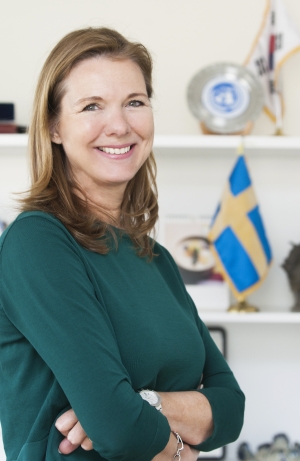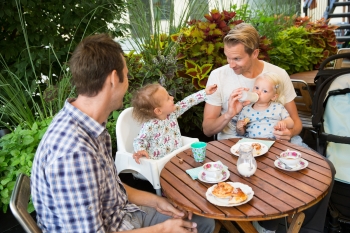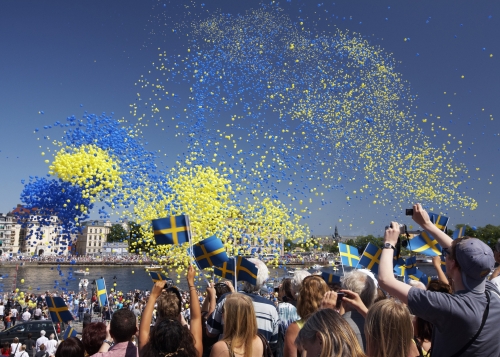“Gender Equality Needs No Arguments.”
• It is Women’s Competitiveness that Has Made their Current Status Possible.
• They Should Go Beyond the Limit.
• I Want to Contribute to Educational Exchanges between Korea and Sweden.

“Women’s status is not what’s acquired by benefits for women but what’s acquired by their competitiveness.”
Ambassador Anne Höglund of Sweden to Korea (photograph) explained that Sweden’s culture of gender equality is the result of efforts made for a long time based on its very strong policies for gender equality and social consensus. Ambassador Höglund added the explanation that the purpose of policies for gender equality in Sweden is to guarantee equal opportunities, rights and responsibilities in every area consisting of a life for both women and men. For this, the childcare services of high quality is provided to ensure women’s rights to work, and discussions over gender equality are naturally performed in schools, the whole society and the politics.
She also emphasized on women’s having economic independence for their decision-making power, saying “Sweden has its gender-equal cabinet with 12 female ministers out of 24, so being called ‘Feminist Government’. The proportion of female national assembly members is 48%. Sweden already had the perception that women had to participate in the labor market in 1930s and promoted women’s economic activities.”
According to the Glass-Ceiling Index announced by The Economist on March 8, International Women’s Day, Sweden ranks the 3rd in terms of a good country for working mothers. Sweden acquired high scores in ten items including ‘higher-education gap’, ‘labor-force participation’, ‘wage gap’, child-care costs’ and ‘share of senior managers who are women’. The Gender Gap Index of WEF also tells that Sweden ranks the 4th among the OECD countries.
The gender-equality policies of Sweden have been based on the perception that knowledge and experiences of both women and men promote development in every social area in addition to equal distribution between women and men.

“Sweden has a high level of transparency. If a policy is established, its implementation is supervised. For example, the media put a lot of pressure on implementation. The roles of the media are very significant. The whole society is constituted by suggestions from the bottom and participation of citizens. And there are always eyes to check.” said Ambassador Höglund to explain Sweden’s will to realize policies.
Sweden could become a gender-equal country because of the political and systemic support. Ambassador Höglund emphasized, “Sweden has the ombudsman system to supervise whether gender-equality policies are properly implemented in companies or schools. The gender-equality ombudsman system mainly checks the observance of the Law of Anti-discrimination. The Government prohibits all forms of discrimination by gender, race, religions, age and disability.
Especially, the family-friendly policies of Sweden are very systematically organized to guarantee work – life balance of both women and men, based on policies of gender equality and welfare. Out of 480 days of parental leave for the parents, each parent is obliged to have 60 days for which 80% of their full wages are paid.
Ambassador Höglund said, “I also took parental leaves of 13 months for the first kid, 12 months for the second and 14 months for the last. Afterwards, my children got education of good quality at a public childcare center. Of course, people around my family gave help to us. I do not think parental leave had any negative impact on my career development.”
Ambassador Höglund, having started for her post last September, said, “I have great interest in Asia – Pacific region of dynamism and various elements. Korea has a great potential of economic exchanges with Sweden in such areas as improvement of competitiveness and creativity. I have high expectations in human resource exchanges, too. There are an increasing number of Swedish students wanting to study in Korea. I want to contribute to educational exchanges between the two countries.”
She lastly gave an important message to Korean women, saying “Korean women are strong. Please make sure you have dreams. Do not forget yourselves. Women should continue testing their limits and try to widen their boundaries. If you want to change something, just keep going in your given situation.” End.


